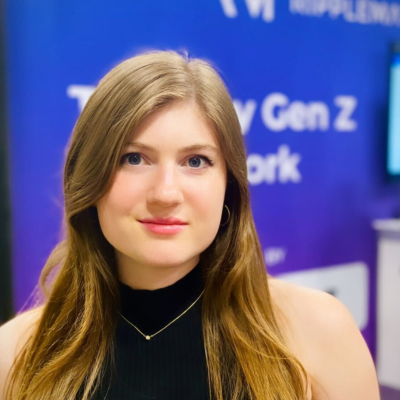
The State of the Gen Z Job Search in 2022
Two years after the start of the pandemic we remain in a candidate-driven market, and recruiters are still battling for Gen Z’s attention as early career talent is inundated with job opportunities from companies big and small. And you can rest assured that today’s candidates have caught on that they are a highly sought-after group, and have expressed clear preferences for workplace policies and cultures that organizations would be wise to embrace if they are looking to remain competitive in today’s market, such as flexible work settings.
On top of that, there are intimidating stories and rumors floating around the talent acquisition community about these new entrants into the workforce — such as that they are being offered sky-high salaries, reneging on their offers at rapid rates, and are constantly hopping from one job opportunity to the next. But what is fact, and what is fiction? In March 2022, we surveyed nearly 5,000 college juniors and seniors to uncover the truth about what Gen Z is experiencing in the workforce, as well as what they hope to see in future employers. In other words, we set out to determine The State of the Gen Z Job Search.
Read on for some high-level takeaways of our report to better understand early career talent and how to successfully recruit and retain the top candidates of today. You can also download the full report for more data and analysis.
Most candidates are weighing at least 1-2 additional offers.
Before diving into how much Gen Z candidates are earning this year, or how long they intend to remain at one company, it’s important to first have an understanding of how many offers candidates are weighing in today’s market. And we found that a majority of internship and full-time candidates today are receiving multiple job offers. Specifically, 64.5% of internship candidates and 67% of full-time candidates received at least 1-2 additional offers, (or 2-3 total offers).
We found that 44% of candidates who applied to internships for summer 2022 received 1-2 additional offers, and 20.5% received 3 or more additional offers. 35.5% of internship candidates received only one offer. Those figures were very similar for full-time job seekers as well, with 43.7% receiving an additional 1-2 offers, and 23.9% receiving 3 or more additional offers. We found that 32.5% of respondents received only one offer for a full- time position.
We also took a look at what internship candidates and full-time candidates in the most competitive fields today are experiencing — namely in software development, marketing & advertising, finance, and engineering. We discovered that while about 20% of interns in software development, finance, and engineering received 3 or more additional offers, only 11.9% of interns in marketing took home that many offers. When it comes to full-time candidates, a larger share of entry-level hires in software development received 3 or more additional offers compared to those in the field who found themselves with just one offer.
If candidates are receiving multiple offers, you can assume they are interviewing at a number of different places. During your hiring process, ask candidates about the timeline of when they expect to receive other offers and make a decision, and be sure to get something in their hands before they feel pressured to make a quick choice. You can also stand out to candidates by establishing yourself as a resource for them throughout the hiring process, as they are bound to have questions as they evaluate their offers. Plus, early career recruitment teams should be sure to lead with their most attractive offer letters and be prepared to receive counter-offers from candidates.
Career fit is the top reason candidates have or would renege.
When it comes to reneges, we found that while most candidates haven’t backed out of an offer to date, it doesn’t mean that they wouldn’t in the future. In fact, our data shows that while 80% of candidates have not reneged on a past offer, a strong majority of respondents said that they would rescind an offer for the right reason (62% of internship candidates and 72.9% of entry-level job seekers).
The top reason why candidates have or would renege is if the new position better aligned with their long-term career goals. In fact, about 60% of candidates who said they did renege did so for career fit, and 85.3% of internship candidates and 77.7% of full-time candidates said they would renege over career fit. Other top reasons included if another role offered a higher pay, followed by whether another opportunity have superior work-life balance policies.
Gen Z internship and full-time job seekers have an eye on the future as they kick-start their careers, so make sure you discuss career alignment with candidates during their interviews. Plus, while a superior work-life balance and company culture wasn’t the primary reason why candidates said they have or would renege, a significant portion across the board said it would be enough to sway them one way or another. As you market open roles, be sure to showcase flexible work opportunities and illustrate your company culture to candidates.
Most entry-level hires make less than $100k in their first roles.
In today’s competitive labor market, we know companies are using every tool at their disposal to attract top talent. One of those age-old tactics is to offer candidates higher salaries. But how high are the numbers going?
Through our survey, we found that a majority of candidates (67%) are making less than $100,000 in their first roles. Specifically, 15.7% are making $6,000 or less, 28.8% are collecting between $61,000-$80,000, and 23.2% are earning between $80,001-$100,000.
At the same time, there is a significant portion of students who are collecting unprecedentedly high salaries for entry-level roles. In fact, our data shows that 21% of full-time candidates are earning between $101,000-$130,000, 8% are bringing home between $131,000-$150,000 and 3.5% are earning more than $150,000.
In addition to their salaries, we asked students how much they were offered in terms of bonuses, and found that 62% received a bonus less than $10,000. Diving deeper, our data shows that 38.5% of candidates received $5,000 or less in a bonus, and 23.5% were given a bonus between $5,001-$10,000. 14.5% collected a bonus between $10,001-$20,000, and 23.5% received a bonus exceeding $20k.
Understanding what candidates are making in this market can help you determine how competitive your salaries are, which is especially important when you are drafting an offer for that candidate you really don’t want to lose.
Candidates are interested in financial benefits & limited PTO.
Now that you have an understanding of what salaries candidates are earning, it’s time to delve into another aspect of your offer letter that can make or break your chance of securing that top candidate — your benefits package. We asked students to rank the most meaningful benefits to them (with the options being financial benefits, wellness benefits, work-life balance benefits, and career development benefits), and found that Gen Z places the greatest value in benefits that support financial security and financial education. For both internship candidates and full-time job seekers, the next valued benefits are those that support a healthy work-life balance, followed by health and wellness benefits. Candidates valued career development benefits the least.
We also asked candidates seeking full-time roles to select the most meaningful work perks that fall under each of those categories. Looking at the financial benefits that matter most to Gen Z, we were not surprised that today’s job seeker is interested in joining a company that will support them if they or their loved ones need medical attention. In fact, 73.6% of respondents selected affordable healthcare coverage (with a low deductible and low to no premium) as a meaningful financial benefit, (and 84.2% of full-time job seekers also said that affordable healthcare coverage was a top perk when it came to the category of health and wellness benefits.)
Turning to the benefits that support a healthy work-life balance, we found that Gen Z job seekers prefer a set amount of PTO to unlimited PTO policies. In fact, 63.8% of full-time candidates selected set PTO as a meaningful benefit, while only 34.9% chose unlimited PTO.
Taking the time to acknowledge what Gen Z candidates value in workplace benefits can help you both support your company as it continues to tweak its benefit package, as well as understand what to showcase to early career talent as you present your company. Within the full benchmarking report, we also delve into data on what internship candidates — the next class of full-time job seekers — value in the workplace. In addition to surveying students about workplace benefits, we also asked candidates to rank the workplace values that matter to them most, and found that a majority chose receiving a 'competitive compensation' as their number one value, and listed 'social impact' or mission as the value they care about the least.
Gen Z prefers a hybrid work model.
We also sought to determine how Gen Z candidates prefer to work — an important factor to consider when determining how to successfully retain candidates. Our data shows that while most candidates this year are in an in-person or hybrid model, a majority of both internship candidates (53.8%) and full-time candidates (56.1%) prefer a hybrid model in which they can decide when they come into the office, and when they work from home. Interestingly, a larger share of students in both groups said they preferred an opportunity that was fully-in person to one that was fully remote.
As you evaluate whether you have the policies in place to encourage hires to remain at your company, you should ensure that your company’s rules around where employees can work are in line with Gen Z preferences.
Gen Z candidates expect to move up the ladder quickly.
When it comes to keeping early career hires happy and satisfied at your company, it’s also helpful to have some insight into their thoughts around how long they will remain in their entry-level role before they are given a new title and more responsibility. And we found that Gen Z has high expectations for receiving promotions. Our data shows that 78.1% of internship candidates and 72.2% of full-time candidates expect to climb the ranks within one year.
Looking at internship candidates, the second to largest share of respondents (12.8%) said they expect to be promoted after one and half years at their company, followed by 7.1% who expect to move up after two years. Just 2.1% of internship candidates expect two and a half years to go without a promotion. Similar to internship candidates, the second to largest share of full-time respondents (13.9%) also expect a promotion after a year and a half. Notably, a larger share of full-time candidates (11.9%) expect to be promoted after two years than internship candidates (7.1%). We also found that just 1.9% of full-time candidates expect to wait two and a half years before moving on to a higher role.
Our findings show that candidates expect to be recognized for their efforts within a year, and hope to advance rather quickly. With this in mind, you should help candidates picture what their career growth at your company might look like within the next few years, and what the steps are to receiving a promotion.
In addition to shining a light on what salaries Gen Z are earning today, our benchmarking survey found Gen Z (1) has multiple offers they are weighing against each other, (2) are concerned with career fit, (3) are interested in financial wellbeing and set PTO, (4) prefer flexible work opportunities, (5) expect to promoted quickly, and much more.
To uncover more about today’s Gen Z candidate, download our full report. Because armed with the data from our findings, you will be ready to take on the competitive labor maker confident that you understand the expectations and behavior of Gen Z.





